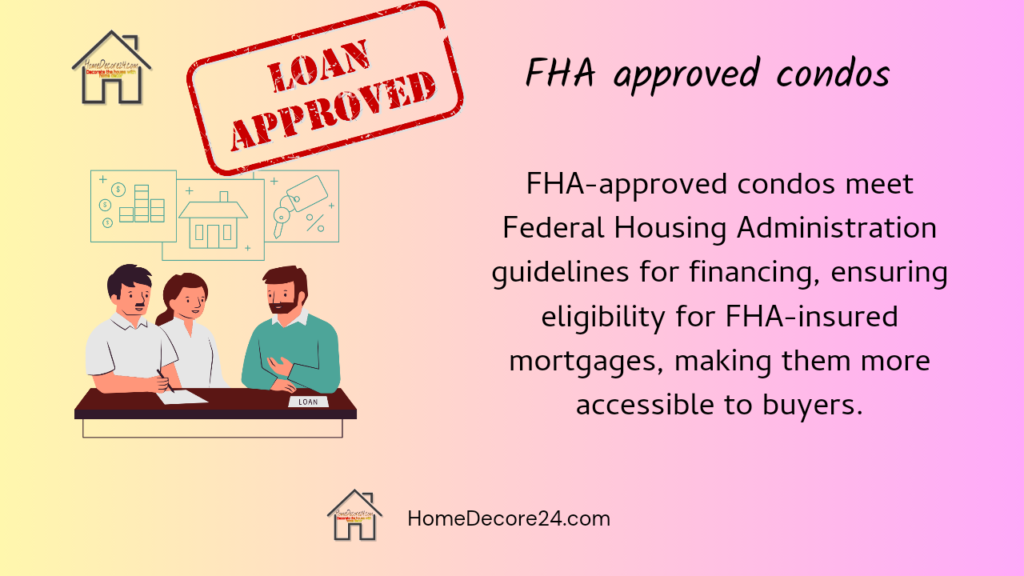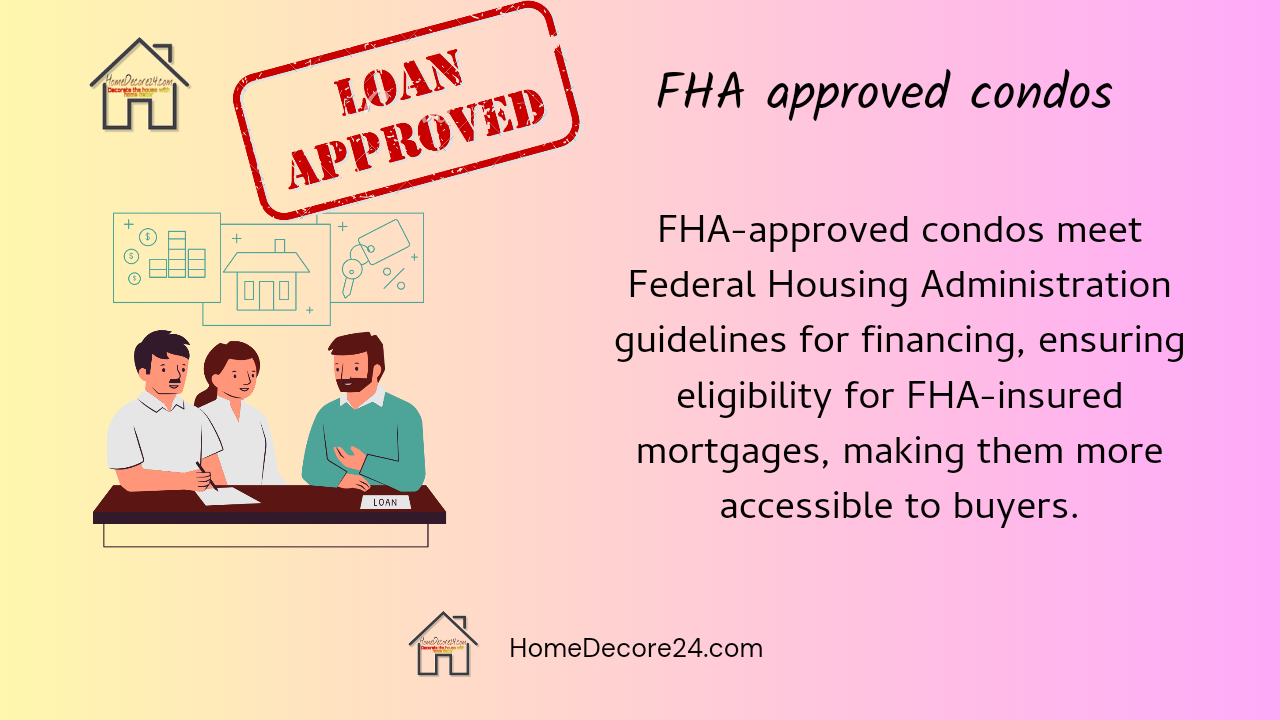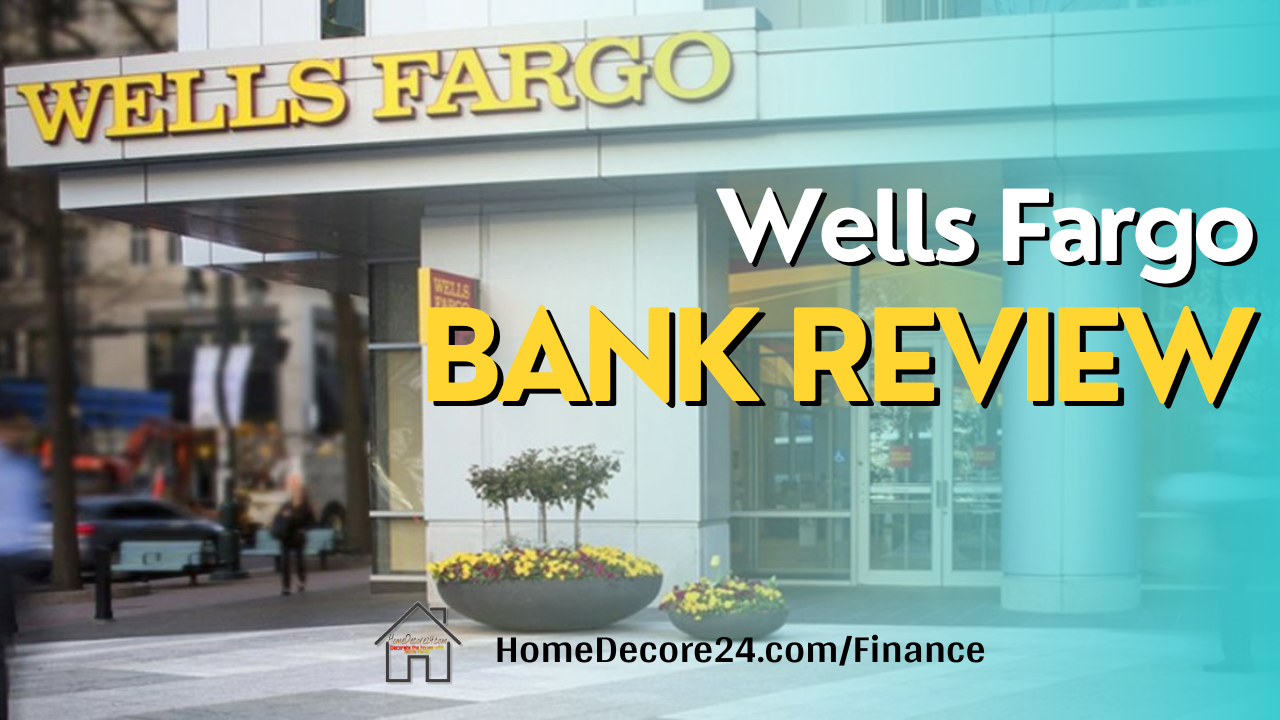
Navigating the world of homeownership often involves a maze of considerations, and for those seeking condominiums, the process can become even more intricate. Federal Housing Administration (FHA) approval adds an additional layer of importance, as it allows potential buyers to secure FHA-insured loans for their condo purchases.
In this discussion, we will explore the approval process that condominiums undergo to become FHA-approved and identify key sources where one can find such approved condos.
Understanding this process can empower prospective buyers with the knowledge they need to make informed decisions and confidently step into the realm of FHA-approved condo ownership.
FHA-approved condos meet Federal Housing Administration guidelines for financing, ensuring eligibility for FHA-insured mortgages, making them more accessible to buyers.
What is an FHA approved condo?
An FHA approved condo refers to a condominium project that has met the eligibility criteria set by the Federal Housing Administration (FHA) to qualify for FHA-insured loans. FHA approval signifies that the condo development is compliant with specific financial, operational, and structural standards established by the FHA, making it a viable option for potential buyers who are seeking to secure financing through FHA-backed mortgages.
To gain FHA approval, a condo project must fulfill various requirements, including financial stability, appropriate insurance coverage, a certain percentage of owner-occupied units, and adherence to zoning and building codes.
The approval process involves a thorough review of the condo association’s financial statements, legal documents, and overall community health. This scrutiny aims to ensure that the condo development presents a sound investment opportunity for FHA-backed loans, reducing the risk for both buyers and lenders.
For potential buyers, an FHA approved condo provides several advantages. These include a lower down payment requirement and more flexible credit qualifications compared to conventional loans. It opens up homeownership opportunities for individuals who may have limited financial resources or a less-than-perfect credit history.
However, it’s essential to note that not all condos possess FHA approval, so buyers interested in this option should actively seek out such properties using resources like the FHA’s official database or working with real estate professionals familiar with FHA guidelines.
Read More: A Comprehensive Guide to VA Construction Loans
Why does a condo need to be approved for an FHA loan?
FHA approval ensures condos meet FHA’s standards, indicating their financial stability, livability, and compliance. This makes them eligible for FHA-insured loans, offering buyers with lower down payments and credit flexibility access to homeownership.
How to get a condo FHA approved?
To obtain FHA approval for a condominium project, certain steps need to be followed:
Consult FHA Guidelines: Review FHA’s guidelines for condo approval. These cover factors like owner-occupancy ratios, financial stability, insurance, and more.
Condo Association Application: The condo association must apply for FHA approval. This involves submitting financial statements, legal documents, and community information.
Financial Assessment: FHA assesses the condo association’s financial health, evaluating its budget, reserves, and insurance coverage.
Owner-Occupancy Ratio: A certain percentage of units must be owner-occupied. If not met, the project might not qualify.
Physical Condition: The condos should meet FHA’s structural standards and adhere to local zoning and building codes.
Legal Compliance: All legal documents, like bylaws and CC&Rs, must be reviewed to ensure compliance.
FHA Inspection: FHA might conduct an on-site inspection to verify the condo’s condition and assess any potential risks.
Approval Decision: FHA will notify the condo association if approval is granted. If not, feedback for improvements will be provided.
Renewal: FHA approval needs to be renewed periodically to ensure ongoing compliance.
Marketing: Once approved, condos can be marketed as FHA-approved, attracting buyers looking for FHA-insured loans.
Working closely with legal experts, property management, and real estate professionals can aid in successfully navigating the process to achieve FHA approval for a condo project.
FHA condo restrictions
- Investor Ownership: A maximum of 50% of the units can be owned by investors. This prevents excessive speculative activity that might undermine the stability of the community.
- Commercial Space: A limited percentage of the project’s total floor area can be designated for commercial use. The majority of the space must be dedicated to residential units.
- Concentration of FHA Loans: A certain percentage of units within the project can have FHA-insured loans. This prevents an over-concentration of FHA-backed mortgages in a single project.
- Legal Litigation: The project should not be involved in ongoing litigation that might impact the overall financial stability or marketability of the property.
Meeting these requirements and navigating the restrictions is crucial for obtaining and maintaining FHA condo approval. This approval not only offers potential buyers the advantage of FHA-insured loans but also reflects the project’s sound financial and structural health.
Read More: Exploring USDA Guaranteed vs. Direct Loans
How to find FHA Approved condos?
To locate FHA-approved condos, utilize online resources such as the official HUD website or FHA Connection database. Collaborate with real estate agents who are well-versed in FHA guidelines, or directly inquire with condo associations about their FHA approval status.
What alternative to FHA loans exist for condos?
Beyond FHA loans, alternatives for condo financing include conventional loans with varying down payment and credit score requirements. Veterans can explore VA loans with favorable terms and no down payment. USDA loans cater to low-to-moderate income buyers in rural areas. Private financing, portfolio loans, and state/local programs offer diverse options.
Seller financing, home equity options, and cooperative housing loans provide additional avenues. Nonprofits and community organizations might extend specialized assistance. Careful research into terms and eligibility is vital to choosing the best condo financing alternative that suits individual circumstances.
The pros and cons of FHA Approved condos
FHA-approved condos come with distinct advantages and drawbacks:
Pros
Lower Down Payment: FHA loans allow a down payment as low as 3.5%, enabling buyers to enter the market with less upfront capital.
Flexible Credit Requirements: FHA-insured loans are accessible to borrowers with lower credit scores compared to some conventional loans.
Attractive Interest Rates: FHA loans often offer competitive interest rates, making homeownership more affordable.
Access to Financing: FHA approval widens the pool of potential buyers, increasing the marketability of the condo.
Government Backing: FHA-backed loans are insured by the government, reducing the lender’s risk, which might lead to more lenient loan terms.
Cons
Upfront and Ongoing Costs: FHA loans come with Mortgage Insurance Premiums (MIP), both upfront and annually, adding to the cost of ownership.
Property Requirements: The condo project must meet FHA standards, potentially limiting choices if the available options are not FHA-approved.
Resale Restrictions: If a condo project loses FHA approval, it might impact resale potential, affecting marketability and values.
Limits on Loan Amounts: FHA loan limits vary by location and might not cover higher-priced condos.
Appraisal Challenges: FHA appraisals might have stricter criteria, potentially impacting the purchasing process if issues arise.
Understanding these pros and cons allows potential buyers to assess whether an FHA-approved condo aligns with their financial situation and long-term homeownership goals.
FAQ’s
What is a site condo on a FHA loan?
A site condo, on an FHA loan, is a single-family dwelling within a condominium development. It’s treated as a separate property with its own lot, making it eligible for FHA-insured financing while retaining the benefits of condo living and maintenance.
What is fannie mae approved condos?
Fannie Mae approved condos meet eligibility criteria set by Fannie Mae, allowing buyers to secure conventional loans. These condos adhere to financial, operational, and legal standards, expanding financing options for potential homeowners within approved projects.
YouTube Video
Bottom Line
FHA-approved condos undergo a thorough approval process that examines financial stability, owner-occupancy ratios, physical condition, and legal compliance. This process ensures that these condos meet FHA standards, making them eligible for FHA-insured loans. To find FHA-approved condos, one can search on the official HUD website, utilize the FHA Connection database, work with real estate professionals, or directly inquire with condo associations.
Understanding the process and knowing where to find FHA-approved condos empowers potential buyers to make informed decisions when considering this financing option for their condominium purchase.
✓ Construction Loans: Everything You Need to Know







